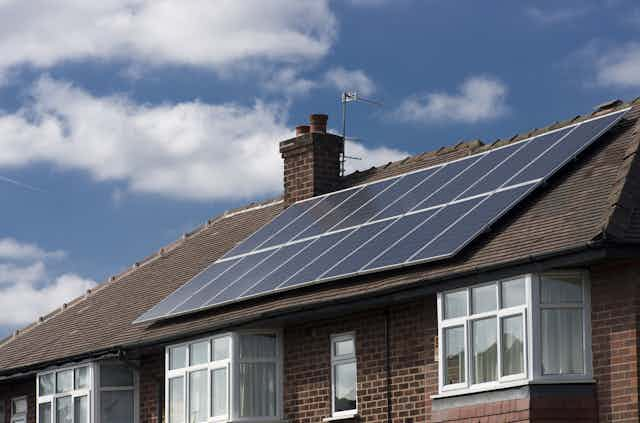More than two million people will be cut off from their gas and electricity this winter because they can’t afford to top up their prepayment meter. That’s according to a report from the charity Citizens Advice, which says it is helping more people than ever who cannot pay for energy.
Data from the Office for National Statistics (ONS) suggests that lone parents (75%), renters (60%), disabled adults (54%), and Black, African, Caribbean, or Black British adults (58%) are more likely to report difficulties in affording their energy payments compared to the national average of 43%.
Underlying all the vulnerable groups who will struggle to keep warm this winter is class. Apart from people aged 65 years and over (who are also more likely to live in homes with lower energy efficiency and so consume more gas and electricity as a result) those most affected by fuel poverty are people who live payday to payday and have very little savings, if any. Race sometimes becomes a factor as government figures show that Black households (54%) are most likely out of all ethnic groups to have a weekly income of less than £600 (US$760).
Soaring heating expenses, stagnating or declining wages and poorly maintained housing have marred millions of lives with debt and poor health. Estimates suggest that 10% of excess winter deaths are directly attributable to fuel poverty and 21.5% to cold homes.
So what support is available – and what is actually needed?
National schemes don’t go far enough
The government energy bill support scheme gave every household a £400 discount on their energy bills for winter 2022-2023. This ended in March 2023. Now some households could get £150 off their electricity bill (or added to their prepayment meter) for winter 2023-2024 under the warm home discount scheme.
This discount should be automatically applied to your bill, meaning there is no need to apply for the scheme if you are getting the guarantee credit element of pension credit or are on a low income and live in England and Wales. You may need to apply for it if you are eligible and live in Scotland, however.
The Citizens Advice website has useful information on grants and benefits to help with paying energy bills in England. Your local council may have other schemes so it is worth checking.

Research I conducted with others has shown that what support is available is inadequate. People may be unaware of their eligibility for the warm home discount and struggle to contact their energy supplier, as is sometimes required in Scotland. They may also be loath to contact their local authority for information on nearby “warm spaces” – public places that anyone can use to stay warm, like libraries.
Eligibility itself poses a problem because people in need often miss out due to narrowly defined criteria that excludes people on marginally higher incomes or who are self-employed. Inaccurate government data and flawed disability assessments are also an issue.
Warm communities
Fuel poverty is a devolved policy area in the UK, meaning that powers and funding rest with local government. But our research shows that people in poverty and ethnic minority groups often do not trust city councils and local political representatives.
Fortunately, others are taking action. Community Energy England, a not-for-profit company, provides free resources for people who want to start community energy projects. One example, Brighton Energy Co-op, has invested in the installation of solar panels on buildings, ranging from schools to blocks of flats and even a football stadium. Money raised from selling this electricity has helped repay investors and funded insulation and other energy efficiency improvements for vulnerable people.
Energy efficiency experts Groundwork’s Green Doctors also give vulnerable people (remotely and in person) useful tips on how to save energy and where to find discounts. Their advice includes demonstrating how to put reflective panels behind radiators so that more heat is kept within rooms instead of being lost through walls.
The Fuel Bank Foundation provides emergency credits for people whose prepayment meters run out.
All of this work is helpful because research shows that households in the areas hardest hit by fuel poverty are not benefiting the most from government programmes.
More help is needed
People should not be dying as a result of cold homes in a country as wealthy as the UK and given the statistics, the government ought to implement a programme of targeted benefits for elderly people with disabilities, addressing the extra costs related to disability and care needs.
Our research also indicates that higher unemployment rates, low wages, and limited career progression in low-paid sectors frequently ends in fuel poverty, particularly among people in lower socioeconomic classes and especially those from Black communities.
Tackling fuel poverty requires diverse, long-term solutions. The support currently offered should expand to involve community-led approaches to improve energy efficiency and help those in dire need.

Don’t have time to read about climate change as much as you’d like?
Get a weekly roundup in your inbox instead. Every Wednesday, The Conversation’s environment editor writes Imagine, a short email that goes a little deeper into just one climate issue. Join the 30,000+ readers who’ve subscribed so far.

